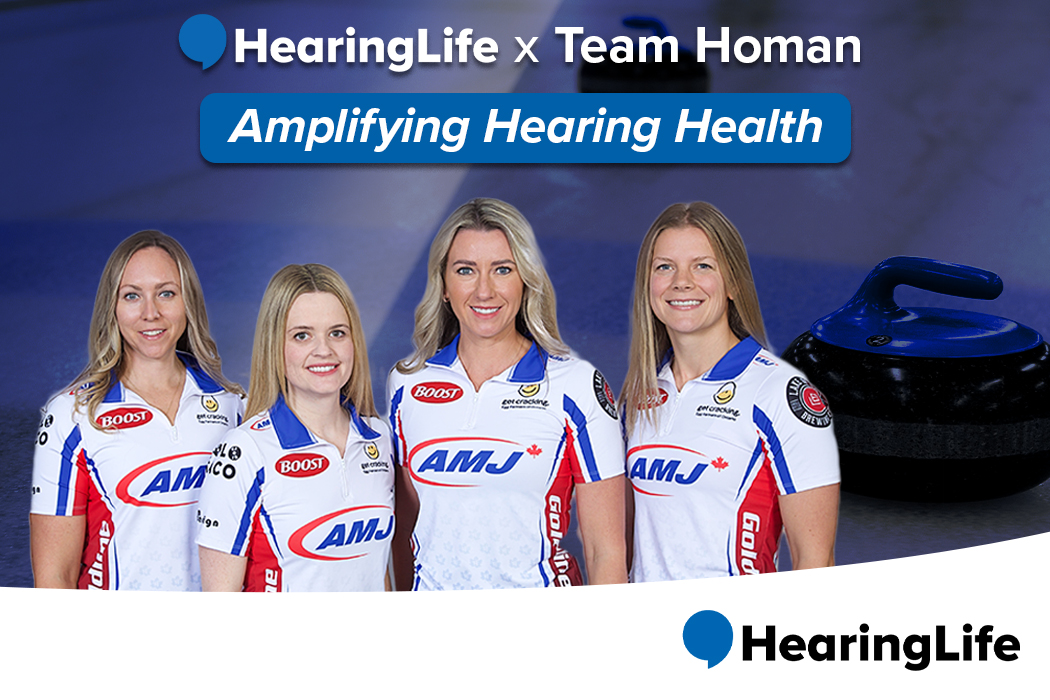Did you know that May is Speech and Hearing Awareness Month? A lot of people think of hearing loss as something that is not very common, but the truth is that hearing loss is the third most prevalent chronic health condition among seniors in Canada and is affecting about 10 per cent of the country’s total population.
Hearing impairment is often a slow and gradual process that can begin as early as your 40s, and many people don’t realize that it’s happening until it is severe enough to cause issues in their day-to-day life.
Unfortunately, at least three million Canadians suffer from noticeable hearing deterioration, but fewer than one in six of these people use any sort of hearing aids. Poor hearing can have a serious impact on your personal relationships, and it can even lead to social isolation and feelings of depression and anxiety if left untreated.
In honor of Speech and Hearing Awareness Month, we wanted to share just how important healthy hearing is to strong relationships.
Healthy Hearing Helps Keep You Connected
We all have moments when we mishear something or have to ask someone to repeat a question. Situations, such as when you ask your mom if she’d like soup or salad, and she replies, “Yes, please!” can make communication a chore, especially if they happen regularly.
For the person who is hard of hearing, it can be frustrating or embarrassing to have to frequently ask people to repeat what they’ve said. In many cases, the person with hearing difficulty will either begin to withdraw from social interaction or stop asking for clarification entirely.
Below are ways that your hearing impacts your relationships
1. It connects you with your grandkids

As you age, staying in touch with children and grandchildren becomes even more important, and poor hearing can prevent this. This is especially true when your grandchildren are young because they are often not able to speak clearly or modulate their voices to help you hear better.
Keeping up with your hearing health and getting proper hearing aids can help you have better relationships with your kids and grandkids, and it will help you feel more confident about spending time with them.
2. It gives you social confidence

Hearing problems are usually exacerbated by public spaces that are noisy, crowded or prone to echoing. Have you ever asked a server to repeat their restaurant’s specials because you couldn’t hear it the first or even the second time?
To avoid the embarrassment of such difficult conversations, people who struggle with hearing loss often choose to stay home instead of meeting friends at cafes, restaurants or shopping malls.
Getting fitted for the right kind of hearing aids and learning tips from an expert regarding how to effectively communicate in noisy places will give you the confidence you need to go out and have fun with friends without fear of embarrassment.
3. It helps your marriage

Good communication in a marriage or partnership is just as much about talking as it is about listening, and anyone in a relationship will agree that life is better when you can have low-stress conversations.
Your spouse may love you, but coping with untreated hearing loss can cause anyone to become frustrated and even resentful. It's common for couples to simply stop connecting and communicating in these situations because both sides are tired.
For instance, watching TV at a high volume might be very unpleasant to your spouse and can eventually lead to conflict. Instead of growing apart, take the time to maintain your hearing health so that you and your partner can enjoy a warm and happy home together.
4. It keeps you young

Many people don’t realize that healthy hearing helps with the balance issues that often plague adults as they age. These issues often keep people from participating in more active lifestyles or doing things they want to do.
Being able to hear well can not only lessen your risk of falling, but it can also give you the confidence to go on holiday alone, take the skydiving trip you've always dreamed about or do any number of fun and exciting things that you might otherwise feel "too old" for.
Hearing Well is Living Well
Even if you think your hearing is okay, anyone over the age of 40 should schedule regular hearing assessments. Because the change happens gradually, you might not notice until your hearing is seriously impaired, and this can have a huge impact on your quality of life.
Remember that healthy hearing means healthy relationships, so take the time to get a free hearing assessment this month.





